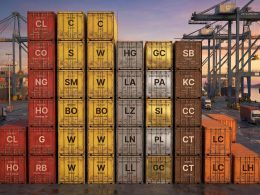Eric Sprott, CEO, and David Franklin, Managing Director, Sprott Asset Management discuss the U.S. Government debt program in their latest instalment of Market Commentary, "Is it just a Ponzi Scheme?."
Sprott believes the market will overwhelm the Fed's money printing program, striking at the credibility of the dollar, and this will send the S&P500 below its March 9, 2009 low.
Via Bloomberg:
- The Standard & Poor’s 500 Index will collapse below its March lows as an expected rebound in economic growth fails to materialize, according to hedge fund manager Eric Sprott.
- The Toronto-based money manager, whose Sprott Hedge Fund returned about 496 percent in the past nine years as the S&P 500 lost 32 percent in Canadian dollar terms, said the index’s 66 percent rally since March 9 reflects investors misinterpreting economic data. He’s predicting the gauge will fall 40 percent to below 676.53, the 12-year low reached on March 9.
- “We’re in a bear market that will last 15 or 20 years, and we’ve had nine of them,” Sprott, chief executive officer of Sprott Asset Management LP, which oversees C$4.3 billion ($4.09 billion), said in an interview Dec. 18.
- Sprott said the Federal Reserve has kept bond yields and interest rates artificially low through its program to buy agency debt and mortgage-backed securities. The central bank expects the securities purchase program to finish by the end of March. Expiration of the program would reduce demand for fixed- income securities, forcing up bond yields and interest rates and hurting economic growth, Sprott said. (seeing how that plays out in 2010 will definitely be one of the most interesting development's of the year)
You can dowload the whole letter, "Is it just a Ponzi Scheme?," here.











Comments are closed.